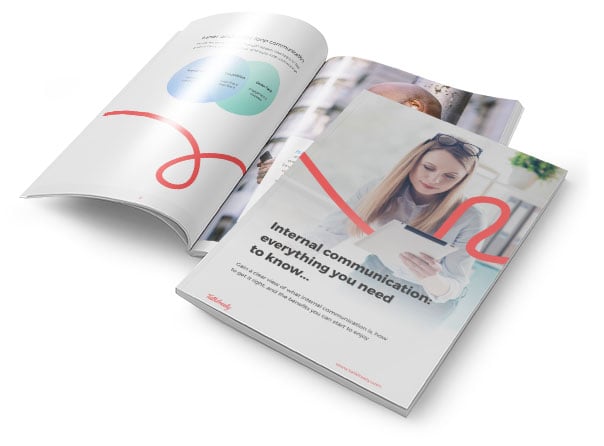Remote working looks as though it’s going to be the norm for a while yet. While the ‘work from home’ guidance has been lifted and some employees are returning to the office, many more are opting to stay home at least part of the time. Figures released by Statista suggest that 44% of UK employees aged between 30 and 49 were working from home as of June 2021.
The reality of working from home has created a climate that may not seem conducive to introducing new employee engagement initiatives. Whilst this is the case for some plans, now is not the time to put your employee engagement strategy on the backburner. In fact, it is at times like these that your employees need you to engage with them more than ever.
Recent research by Forbes revealed that one in five remote workers feel isolated and lack a sense of belonging. If you’re going to keep your remote employees engaged with their work and the company as a whole, it’s clear that some new initiatives for employee engagement are required. In this blog, we take a look at exactly what is employee engagement and identify seven initiatives to implement now.
What is employee engagement? And what is the impact of remote working?
Employee engagement is the act of creating an environment where your employees feel able to perform their best work. This environment goes beyond simply the physical space your employees inhabit; it also requires that you introduce initiatives that support communication, interaction and mental wellbeing.
And how is employee engagement affected by the switch to remote working? Lack of communication is one of the critical issues. Remote employees can quickly feel disconnected from leadership and colleagues without regular interaction. The lack of face-to-face contact and reduced interaction can make it harder to maintain the company culture, ultimately impacting engagement levels.
However, employee engagement trends also suggest remote working can have a positive impact. Research shows that 75% of remote employees believe that working from home has helped them create a positive balance between their work and personal time. The answer is to put effective employee engagement initiatives in place to counteract the negatives and make the most of the positives.
Seven examples of employee engagement initiatives to implement now
Implementing employee engagement ideas whilst your team is working remotely is essential to maintaining organisational engagement. However, identifying initiatives that can be introduced without face-to-face interaction can seem like more of a challenge.
Utilising the initiatives outlined below will help you improve your employees’ engagement levels, both with your company and their work.
#1 Keep communication open
Above all other employee engagement initiatives, communication is vital. An open, two-way dialogue between team leaders and employees is essential to ensuring that your team feel listened to and appreciated. Keeping communication open and encouraging genuine interaction will also help your employees stay connected to your organisation and the wider team.
Provide your employees with a choice of channels to communicate on, from email and intranet to instant messaging, videos and more. Employee engagement software can offer a super-channel to facilitate the interaction you hope to see. Once you have your chosen platform in place, make sure you’re an active and engaged user, promoting open dialogue across all areas of your company. This type of solution will provide your team with one central hub for communication, bringing your organisation closer together, no matter where they are.
#2 Make recognition public
Your team may not be in the office, but they are still working hard to ensure the success of your company, and you need to acknowledge that commitment. Without the regular day-to-day office interactions, it can be challenging to keep track of who’s doing what and when. It’s important to implement infrastructure that allows you to monitor your team better to identify successes more easily. Utilising video calls or using an employee engagement app to interact with your team will give you a better understanding of their work performance.
Once you have this infrastructure in place, use the information and feedback that you are getting to recognise your team’s successes publicly. Not only does this type of recognition encourage other employees to follow suit, but it shows your team that you are still actively engaged with them, whether you’re working remotely or not. These types of staff engagement initiatives will give you an immediate positive uplift in engagement levels.
#3 Encourage healthy competition
Introducing a series of competitions between teams across your organisation is a simple way of reconnecting your employees and bringing a bit of fun into the workday. You can utilise these competitions to improve performance or customer experience. Consider a competition linked to customer reviews or sales to bring out the full potential of your team. It’s an entertaining and highly effective way to boost employee engagement and motivation.
When implementing these types of staff engagement initiatives, the reward must match the investment you expect your employees to put in. If your team don’t feel that what you are offering is worth the extra work, then it is unlikely that they will actively engage with the competition. Competitions are one of the employee engagement initiatives examples that work beautifully for remote employees, delivering that sense of camaraderie that can be missing when working from home.
#4 Conduct regular surveys
Your remote employees will be facing a whole new set of challenges than the ones they’ve been used to. But, you won’t find out about them unless you ask. When you have dispersed teams who are having to adapt to a new way of working, it’s important to check in regularly. They may not wish to bring up issues in a whole team zoom meeting or use up valuable one-to-one time, so you need to provide an opportunity for your remote workers to speak out. You need to provide a platform for the employee voice.
For remote workers, it’s a good idea to conduct an employee engagement survey on a regular basis. At least once a month is a good starting point. An employee app will make it easy to schedule and deliver surveys. It will also help you collate the results into actionable points.
Relevant questions will cover the ease of contacting co-workers and management, the challenges faced in the work-from-home environment and their level of satisfaction with the existing arrangements.
#5 Provide a virtual ‘water cooler’
Never underestimate the importance of friendship at work. According to HR News, 66% of British workers say having a friend increases job satisfaction. That daily exchange of chat about non-work-related topics is one of the top drivers of employee engagement. But, without the opportunity for small talk by the water cooler, these vital friendships could come under threat.
However, it’s easy enough to encourage these personal interactions on a virtual level. Employee engagement software will provide a social space where remote employees and office-based workers can meet, chat, and share information. One of the key HR initiatives for employee engagement, a virtual water-cooler or conversation hub, will allow colleagues to enjoy group conversations and private ones-to-ones. It’s a great way to increase employee engagement and keep those friendships alive.
#6 Arrange motivational speakers
Introducing motivational speakers is a tried and tested way to better engage with your workforce whilst showing that you care about their wellbeing. Talks can focus on specific areas, from forming healthy lifestyle habits to implementing strategies to improve performance and productivity. And, one of the great things about motivational speakers is that they can work remotely.
Commission a motivational speaker to provide your employees with a calendar of talks that they can attend from home and tailor them to your specific needs. Make sure that these talks don’t just cover strategies to improve work performance, though – show your team that you value their physical and mental wellbeing as well by offering motivational talks on improving their personal lives too. If you’re looking to implement new employee engagement initiatives, this is a simple and effective one to try.
#7 Introduce mentors
Providing your employees, especially those at the start of their careers, with a more senior mentor that embodies your organisation’s culture is a positive way to show your employees what your expectations are and build intercompany connections. This is especially true for employees working from home who miss out on those natural daily interactions.
When you’re aiming to improve employee engagement amongst remote workers, a real-life mentor will help to communicate the company culture in a way that an email or memo just can’t manage. It’s all about personal connections. A junior team member will learn from and hopefully begin to emulate their mentor. The result? A more connected and dynamic team committed to and invested in the success of your company.
Implementing new initiatives for employee engagement
Bringing on new employee engagement initiatives might seem difficult at a time like this, but it is essential to the continued success of your company. Take time to implement an employee listening strategy to identify precisely what your team needs from you right now. Keep an eye on employee engagement trends to guide the initiatives you put in place.
Introducing new employee engagement initiatives is key to maintaining an engaged workforce. Any initiatives that you introduce must be delivered with a focus on your team’s wellbeing, which is why our suggestions are all employee focused.
Utilising software, such as an employee app, will help you better monitor your team’s engagement levels and guide the implementation of your strategies. Keeping your lines of communication open, and encouraging a sense of teamwork and belonging, is essential to maintaining organisational and work engagement during difficult times.
Topics:
Employee Engagement









.jpg)
.jpg)